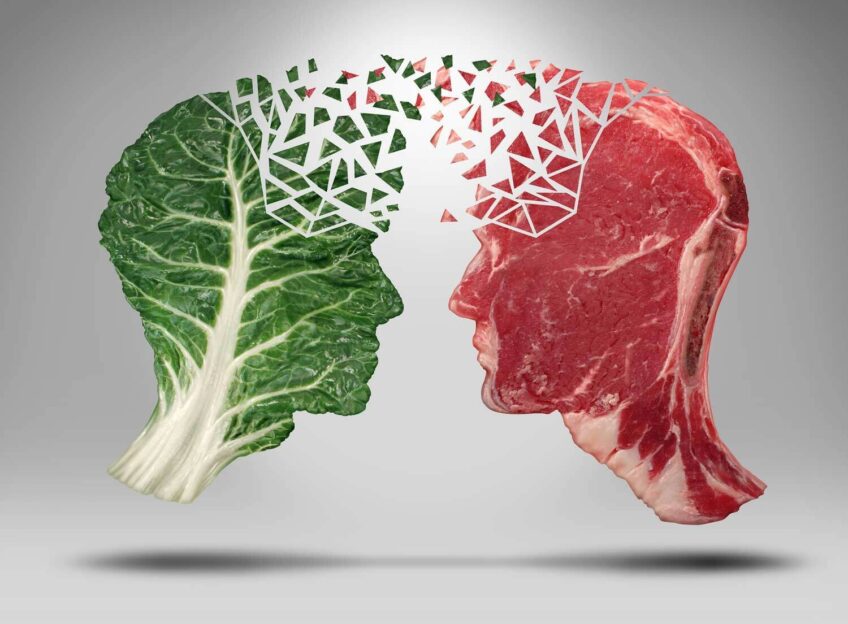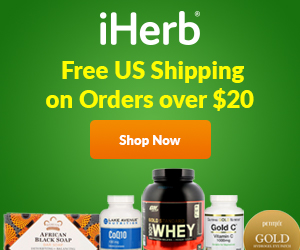How Becoming Vegan Almost Killed Me!
A relatively short summary of my experience with a plant-based diet, medical issues, and how I migrated to an animal-based diet.

Ok, maybe the title is a little extreme, but it's not far off from what almost happened to me.
I've always been fascinated with nutrition, supplements, weight training, exercise, and all things fitness. I grew up playing soccer, learning many martial arts styles, and participating in many outdoor sports, such as skiing.
I've never been one for junk food. When I was younger, I would open a bag of M&M's only to eat a few. I have always been extremely sensitive to changes in my body chemistry.
Back when I used to drink, it only took a few drinks to get me pretty drunk. My body and mind have always been hypersensitive.
Fast-forward to my late 30's, and shit hit the fan. I lost my Dad to cancer that took his life within a year, and I was going through a nasty custody battle to fight for my daughter.
I was stressed to the max, to say the least. Knowing and studying nutrition, I knew that the best way to offset the shooting cortisol through my body was going to be through proper nutrition.
So, it began...
My Journey to Eating Vegan
I decided to get serious about nutrition. I read everything from The China Study to watching Forks Over Knives and much more.
They all said the same things. Meat would give me cancer. Salt will give me high blood pressure. And eating mountains of vegetables and fruits is the most nutritious thing anyone can consume.
Well, I needed to be healthy and thought eating what the "experts" said would help with all the stressors in my life at the time. I ditched dairy, eggs, chicken, and red meat immediately.
I ate fish once in a while in the beginning because I also read that people are finding results with a pescatarian diet -- this was my small bridge before going fully vegan.
For breakfast, I would eat oatmeal with berries, crushed nuts, and a hint of cinnamon. I made nutritious smoothies with kale, hemp seeds, and all kinds of "goodness" for in-between meals.
The mountains of salads for lunch were time-consuming to eat, and I never felt quite full.
Everything was on the right path, and the food tasted pretty good. I rarely consumed chips and processed foods and absolutely zero soda.
Something's Not Quite Right...
After about two months, I started to feel like complete garbage. Anxiety was running my life -- I was constantly in a state of flight or flight.
I know that releasing toxins known as the Jarisch Herxheimer reaction (JHR) can happen, and I assumed this is something I needed to ride out -- so I kept at it, being vegan.
I started to get these weird chest pains. I also noticed that about an hour after a mid-morning smoothie filled with plant-based protein, fruits and vegetables, and other goodies, some pretty bad anxiety would kick into overdrive.
The chest pains had me worried. I would also get very intense abdominal pains.
I thought I knew the problem -- I simply wasn't vegan enough!
I doubled up on the veggies, fruits, and "good" eating. My health started deteriorating further, so I made a doctor's appointment.
The doctor was also concerned about the chest pains and abdominal issues. He ordered me to see a cardiologist and radiologist. Thankfully, all was "really good," according to my PCP. I have that in quotes because my doc was impressed with my cholesterol being incredibly low, around 150 total cholesterol. My HDL was below 40. I would later learn that that was far too low and that cholesterol is not the best marker for heart health -- our bodies very much need cholesterol to function properly.
Also, my WBC was ridiculously low (less than 3,500/microliter), and this didn't seem to bother my primary doctor. I was even sent to a hematologist doctor, who did extensive blood testing. Again, I was told not to worry -- that it must be genetic. What?!
Moving on...
My doctor did tell me that my eating was phenomenal. He also said I should supplement with B12 because it's a critical nutrient not found in plant-based eating.
This was also in the books I read, but it was the first time I thought to myself -- how can eating in a way that doesn't provide the full nutrients be considered healthy?
This way of eating was not sustainable. I never got full from eating, and again, I felt terrible all the time.
Looking at New Options
After about six months of eating a plant-based diet, I decided to look at new options and take health matters fully into my own hands.
I found a local MD that didn't conform to the mainstream medical system. He comprehensively checked blood markers from homocysteine, thyroid, testosterone, and even the presence of mold in my body. The results were not good.
My testosterone was non-existent. Remember, I'm in my late 30s around this time. This doctor was very concerned about the low WBC count. Many other things were also completely out-of-whack with my blood work.
This alternative MD also asked me to provide a full list of all the things I ate on a daily basis. He was not in agreement with my primary physician in that eliminating meat was a good idea. He recommended a full elimination diet, then reintroducing foods to see how they affect me.
I was finally starting to see clarity and was very grateful to have a comprehensive look into my health. Why isn't this common practice with all doctors?
Finding the Carnivore Diet
While researching and learning more about an elimination diet, I started to stumble on topics such as the "lion diet," keto lifestyles, paleo eating, and many other articles in this space.
I became fascinated by personal stories (and the growing research) on the many ailments people all over the world were getting cured of -- things like rheumatoid arthritis and a litany of auto-immune issues, seizures, diabetes, and mental health issues such as anxiety and depression.
Could this way of eating be the answer to all my health issues?
I started to devour books on the subject.
The Carnivore Code by Dr. Paul Saladino is the first book I studied. It's packed with science and research -- everything from how our ancestors lived, how plants have mainly toxins, the chemical "warfare" that goes on in our bodies, myths of health needs such as fiber, and the many nutrients we simply can't get through a plant-based diet. The Carnivore Code has become my go-to book on all things diet-related.
Another great book is The Carnivore Diet by Dr. Shawn Baker. It's easier to "digest" (see what I did there), but it still has incredible information on a carnivore lifestyle.
There are so many other MDs and people promoting an animal-based eating lifestyle. There's Mikhaila Peterson, who discusses the "lion diet" and has highly engaging and phenomenal content on her Instagram and YouTube channels. Brian Sanders gets into the many benefits of a Sapien diet. Even Joe Rogan has supported the carnivore diet on his podcast.
This segment of health is growing exponentially, and the positive effects on sustainable agriculture. And, if you think eating meat is harming animals, take a look at CarnivoreisVegan on Instagram -- I love that account!
My Final Thoughts?
At the time of writing this article, it has been roughly three years since switching to a predominantly animal-based diet. My health, workouts, relationships, stress levels, and so much more have positively increased.
The anxiety I experienced has vanished. My blood work is completely normal. My gym workouts are on fire. Oh, and my testosterone is through the roof!
If you know deep in your gut something is wrong with your body, I encourage you to listen to your body and explore a similar route. I mix some berries, avocados, and other fruits, but I'll never go back to listening to "experts" in nutrition and medical recommendations.
I'm not a doctor. Please do your own research and feel free to drop a comment below with your experiences in this way of eating or anything on your mind.
Tony Lee, MS, RD
Tony Lee, RD, MS, is a highly qualified and accomplished Registered Dietitian with a Master’s Degree in Nutrition Sciences. Tony brings over two decades of experience in dietetics, specializing in sports nutrition. Interests include studying all aspects of wellness, fitness, genetics, and peak health performance.










